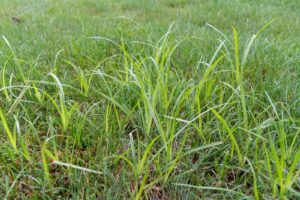When it comes to maintaining a healthy and enjoyable outdoor space, one crucial aspect that often gets overlooked is preventing fleas and ticks in your lawn. These tiny pests can not only cause discomfort and health issues for your family and pets but also pose a risk to the environment. In this article, we will explore five compelling reasons why it’s important to take proactive measures to prevent fleas and ticks from infesting your lawn.
Health Risks Associated with Fleas and Ticks
Flea-Related Health Issues
Fleas are notorious for their irritating bites, causing redness, itching, and allergic reactions in both humans and animals. If left unchecked, a flea infestation can quickly multiply, leading to a more significant problem. Moreover, fleas can transmit diseases such as typhus and tapeworm infections, posing a serious health risk to your loved ones.
Tick-Borne Diseases
Ticks, on the other hand, are carriers of various diseases, with Lyme disease being one of the most well-known. Lyme disease can result in symptoms like fever, fatigue, joint pain, and even neurological complications if left untreated. Additionally, ticks can transmit other harmful illnesses such as Rocky Mountain spotted fever and babesiosis. Preventing these pests from entering your lawn is crucial to safeguarding your family’s health.
Preventing Fleas and Ticks in Your Lawn
Regular Lawn Maintenance
Maintaining a well-groomed lawn is an essential step in preventing fleas and ticks from establishing a habitat. Regularly mowing your lawn and keeping the grass at an appropriate height reduces hiding places for these pests. Additionally, removing leaf litter, trimming overgrown bushes, and clearing debris helps eliminate potential breeding grounds.
Effective Landscaping Techniques
Strategic landscaping can significantly contribute to flea and tick prevention. Consider creating a barrier of gravel or wood chips between your lawn and wooded areas, as this can deter pests from migrating into your yard. Planting certain types of vegetation like lavender, mint, or eucalyptus can act as natural repellents. Furthermore, positioning playground equipment away from tall grass and shrubs can minimize the risk of tick encounters.
Pest Control Methods
Implementing pest control methods can effectively combat fleas and ticks. Professional products can be applied by a licensed pest control company to the lawn to disrupt their life cycle. Likewise, beneficial insects like ladybugs and spiders can help keep the population of fleas and ticks in check. Using pet-safe repellents and treating your pets with flea and tick preventives are also crucial steps in maintaining a pest-free lawn.
Protecting Your Family and Pets
Flea and Tick Prevention for Humans
Preventing fleas and ticks is not only about protecting your furry friends but also about safeguarding yourself. When spending time outdoors, especially in areas with dense foliage, it’s advisable to wear long sleeves, pants, and closed-toe shoes. Applying insect repellents containing DEET or picaridin can provide an additional layer of protection against these pests. After returning indoors, thoroughly check your body and clothing for any hitchhiking ticks.
Safeguarding Your Pets
Pets are particularly vulnerable to fleas and ticks, as they spend more time outdoors and often come into contact with infested areas. Consult with your veterinarian about appropriate flea and tick prevention products for your pets. Regular grooming and thorough inspections are also essential to detect and remove any unwanted parasites. By prioritizing your pets’ well-being, you create a safer environment for both them and your family.
Preserving the Environment
Preventing fleas and ticks in your lawn not only benefits your immediate surroundings but also contributes to the preservation of the broader environment. By opting for natural pest control methods instead of chemical-based solutions, you reduce the potential harm to beneficial insects, birds, and other wildlife. Creating a balanced ecosystem in your lawn promotes biodiversity and supports the overall health of the environment.
FAQs
1. Q: Are fleas and ticks a year-round problem?A: Fleas and ticks can be active year-round, but their population tends to peak during warmer months.
2. Q: Can I get Lyme disease from my pet?A: While your pet can bring ticks into your home, Lyme disease is primarily transmitted through tick bites directly to humans.
3. Q: Do natural flea and tick repellents work effectively?A: Natural repellents can be effective, but their efficacy may vary depending on the specific circumstances. Consult with a 4. professional or your veterinarian for the best options.
5. Q: Is it possible to prevent fleas and ticks without using chemicals?A: Yes, there are various natural methods available to prevent fleas and ticks without relying on chemical-based solutions.
6. Q: How often should I inspect my pets for fleas and ticks?A: It is recommended to inspect your pets regularly, at least once a week, and after outdoor activities to ensure early detection and prompt removal.
Get A Quote Today To Prevent Fleas & Ticks In Your Lawn
To learn more about effective methods for preventing fleas and ticks in your lawn and get a quote click the link below: GET YOUR QUOTE HERE


